Hello, friends. Happy Sunday, and thanks for all of the enthusiasm for Richa’s book on Friday! Keep those giveaway entries coming.
Steven and I are winding up a few weekends of day trips and overnights with family, and I’m in the midst of two big work projects and my first RD class (Food Safety and Management–not the most scintillating, but at least it’s going quickly). All in all, it feels as though June is flying by, and I’m hoping that I’ll have a chance to slow down and savor the summer a little more come July.
In the meantime, there’s always time for weekend reading.
To begin, I’m absolutely loving all of the texture and contrast in this unusual spiced cauliflower, pickled fig, and almond salad.
I want nothing more than to dig into Alanna’s delectable looking curried roasted eggplant with smoked cardamom and coconut milk. What a flavorful dish–perfect to pair with some basmati rice!
My friend Susan (who writes Rawmazing) has created the ultimate raw and cooked Buddha bowl. Get the recipe, along with her recipe for fresh, homemade bouillon.
This week, I reviewed Richa Hingle’s fablous new cookbook, Vegan Richa’s Indian Kitchen, on my blog (and if you missed it, check it out, because I’m giving away a copy of the cookbook and sharing her recipe for mango curry tofu). While I celebrate Richa’s publication, I’m also eyeing her recipe for lentil split pea falafel. Yum!
And finally, dessert. Who could possibly resist these no-bake chocolate mocha fudge and coconut mini tarts from Half Baked Harvest?
Reads
1. A great article about balance from The New York Times. Not the kind of balance I’m usually writing about, which is an attitude (a balanced approach to food, say), but rather physical balance, which becomes so critical as we age.
2. If you’ve read Melanie Joy’s wonderfully succinct and powerful Why We Love Dogs, Eat Pigs, and Wear Cows: An Introduction to Carnism, then you may recall Joy’s assertion that people typically rationalize consumption of meat with “the three N’s of justification”: natural, normal, and necessary. The first line of reasoning holds that eating meat is so deeply rooted in our biology that not eating it is an affront to nature. The second is that eating meat is simply what civilized people do: it is normal behavior. The last is that eating meat is necessary, vital for our strength and good health.
A new study has dug a little deeper into these three N’s, adding a fourth: nice, or the idea that meat eating is pleasurable. Though taste and pleasure may be what drives most people to eat meat, it is rarely the reason cited. As this study revealed, most people (36% in one survey and 42% in an other) cited necessity as the primary reason for meat consumption.
On the one hand, this is troubling, because it is not evidence based. Vegan diets have been endorsed as safe for all phases of life by the American Dietetic Association (1)–a position that took a great deal of accumulated nutrition research into account. Many studies have shown that vegetarian and vegan diets are associated with lower rates of heart disease, overweight, obesity, and certain cancers.
The good news is that the necessity argument can be argued against with scientific evidence. Reasons for meat consumption are complex, and meat eating is often deeply rooted in culture, in feelings of social connectedness, and in tradition. That fact must be taken seriously and treated with respect by anyone who advocates for a plant-based diet. But the idea that meat eating is necessary for good health is certainly something that plant-based advocates can counter with the weight of evidence behind them, and that’s a step toward a more honest dialog about eating animals.
3. A cool interview with Liz Prueitt, co-owner (with her husband, Chad Robertson) of the popular bakery Tartine, about how she’s handled balancing motherhood with her career as a pastry chef. I love Prueitt’s honesty about the challenges of being a working mom.
4. A truly fascinating article about the complex biological processes that occur after death–which of course often give birth to new forms of life.
5. A cool story, via NPR’s morning edition, about why indigenous cultures tend not to see many cases of chronic back pain.
Before I go, I just wanted to share with you my recipe for this week’s New Veganism column: vegan roasted vegetable lasagna. I am truly proud of this hearty, flavorful, summery dish, and I hope some of you might try it soon!
Have a lovely evening. I’ll be back this week with a new salad recipe and a new green recovery story.
xo
1. Craig WJ. Mangels AR. American Dietetic Association. Position of the American Dietetic Association: vegetarian diets. J Am Diet Assoc. 2009 Jul;109(7):1266-82.
You might also like
Happy December, friends! It’s been a somewhat rocky entrance to the month for me, as the past week was full of personal unrest. I slipped into patterns of behavior that feel like me at my worst—stuff so old and habitual and frustrating to me that I don’t even want to write about it. Here’s the interesting news: I’ve somehow managed to regard a bunch of varied relapses—relapses in thought patterns and compulsive behaviors—with an unusually compassionate and non-judgmental gaze. This wasn’t a conscious…
Happy new year, everyone. I hope that 2017 will bring peace and happiness to all of you, and to the world. I’ve been laying low on social media for the last two days, intentionally. The collective resolution and goal setting isn’t for me. In past years I tended to poo-poo and complain about it, but there’s no need for that. I can simply be selective about what I read, listen to, and ponder as the new year gets underway. While I tend to…
Oftentimes when I read about the importance of saying no and setting boundaries, the advice seems to assume that the things being declined aren’t all that desirable: unmanageable amounts of work, exhausting social commitments, and so on. This week, I learned how hard it is to turn down things that might be very enjoyable, but yet feel like too much. As soon as I was on the mend, I wanted so badly to connect with friends, get back to work, and feel more…
I’ve been reading a lot about authenticity lately. I guess this is self-selecting, as it’s a topic that interests me and tends to permeate the spaces I spend time in (yoga studios, blogs that focus on health and self-care, therapy). But authenticity seems to be having something of a moment, too—or so book titles and articles would suggest. For the holidays, my mom gifted me with a copy of Baron Baptiste’s new book, Perfectly Imperfect. I was touched that she thought of it,…


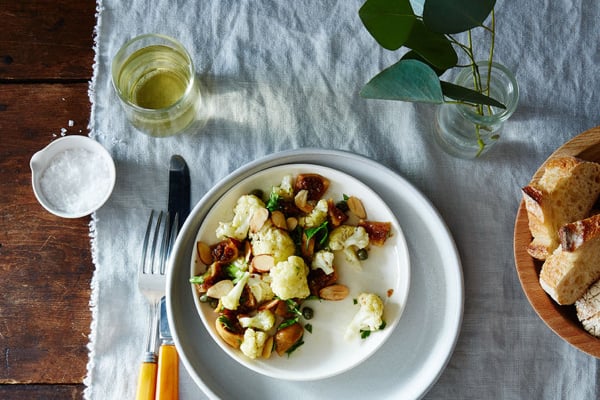
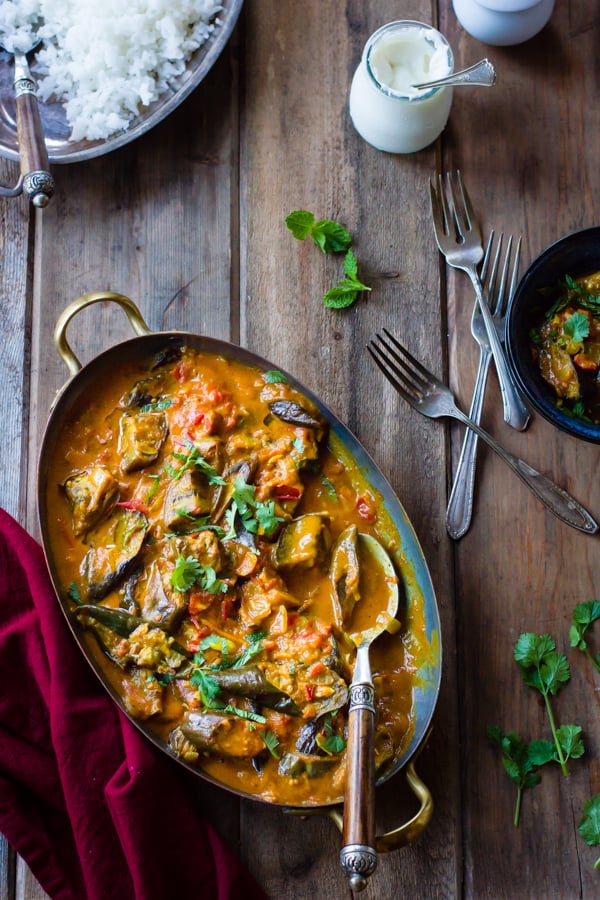
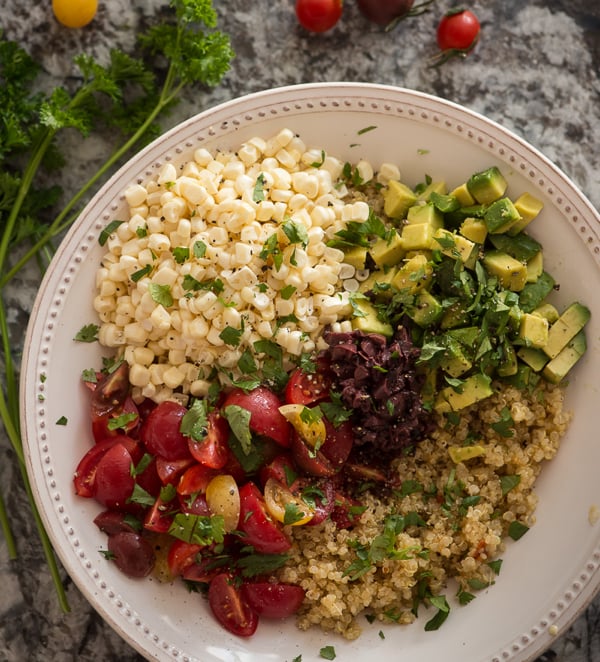
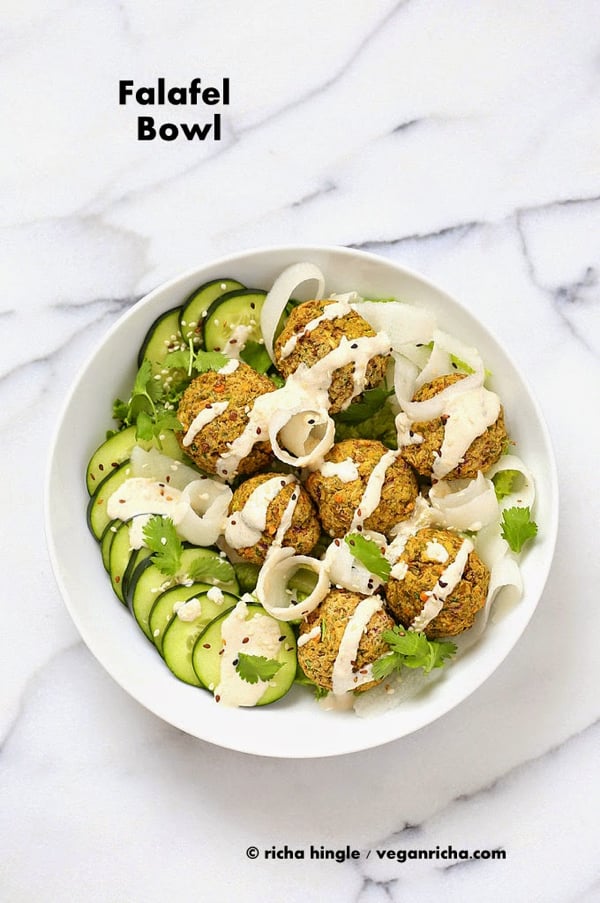
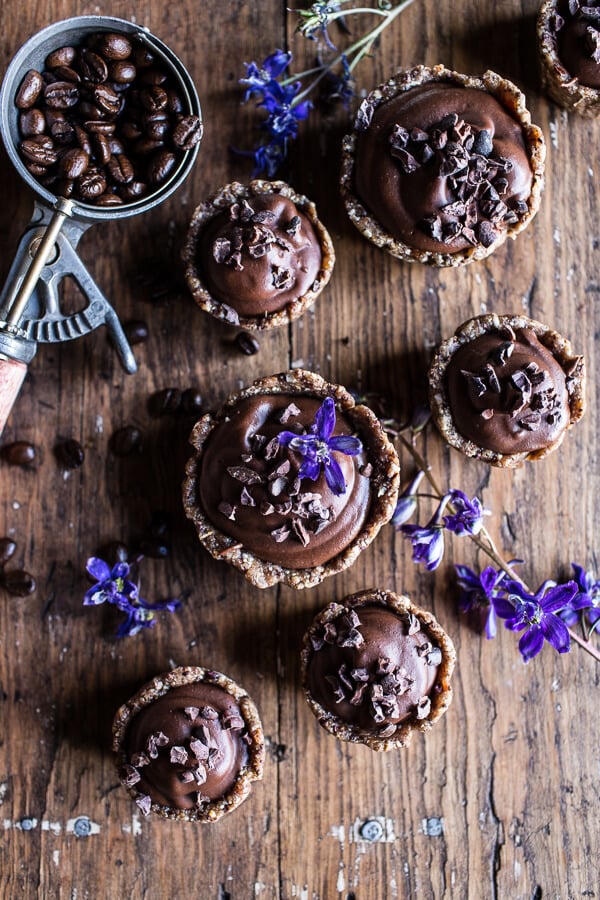
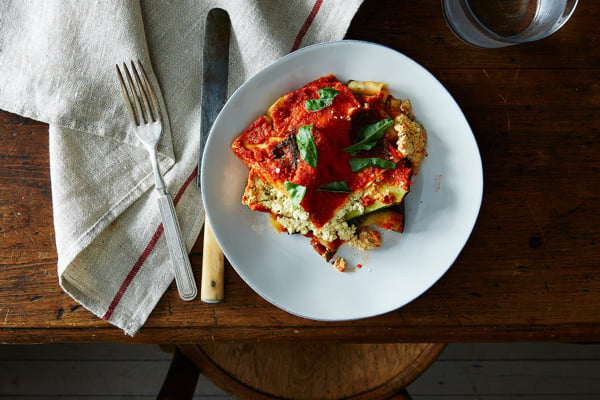
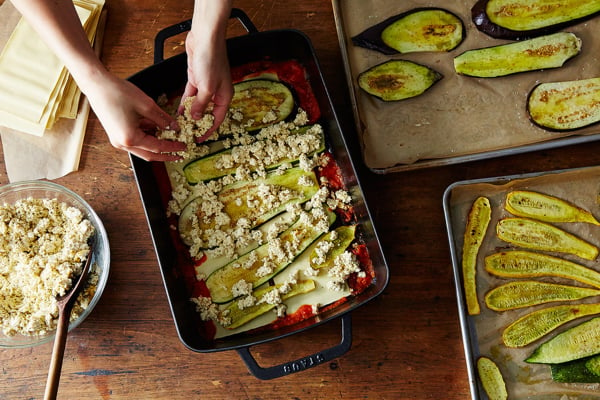
Leave a Comment
hey Gena! Belated congrats on going back to school to become an RDN, you’ll be awesome! I’ve enjoyed following along with your journey for so many years now. I’m finally finishing up after starting 4 years ago and luckily got into an internship in the DC area via Virginia Tech (is your program coordinated or didactic?) for next year. Really excited to finally bring it home and even more excited to have colleagues like you in my future!
FYI the Academy of Nutrition and Dietetics JUST released an updated position paper on vegetarian and vegan diets. If you like the 2009 one just wait til you read the new one- so encouraging to see them make such strong statements in favor of a veg diet! If you’re a member of AND you should have free access.
Ps- I forgot to mention that I’ve made that eggplant recipe before and it’s AMAZING. Make it!
The buddha bowl has got me drooling and I just book marked the artile about Liz Pruitt! Thanks so much.
Thanks for sharing this great list…
thanks for sharing 🙂
https://aspoonfulofnature.wordpress.com/
That eggplan dish looks amazing!!! I never used to like eggplant but I’ve been eating it nonstop for the last two months! It’s so weird! But I definitely have to make the dish 🙂
Funny, I stopped on yr page to find a raw cauliflower recipe but read the newest post first and, whattaya know: more cauliflower. That link looks great too!
Great list, thanks. The cauliflower salad looks intriguing and so do the tarts.
I am glad you commented on the role of meat eating being so embedded into many cultures and serve as a means of social conectedness again (and thanks for addressing my comment on it in relation to your family a few weeks ago! I am sorry I didn’t get to respond to that further on the page, but it was indeed very helpful).
I agree that we need to take this piece of eating animals very seriously. Social connection is a very important aspect of our diets and does still impact our health substantially. It may not contribute to the macro and micronutrients of what we receive from the meal (though that they do also), but they certainly contribute to the emotional nutrition we get – which I would argue has just as much importance as the others. We may not consume animals for the direct nutrition we get from their flesh, but we may consume them for the social connection of sharing in a cultural tradition (even if it is a less than pleasant one) and that is still a very, very, very important aspect of our overall health. Social support and connection certainly comes up time and again in the research about the longest living populations. We often will say that eating animals isn’t necessary (we don’t need the protein) and cite all the ways we can still meat out physical nutritional needs, but we overlook the role it plays in our lives in the social context. If we replace animal foods in our individual diets with plant based sources but forget about the social piece we certainly will fee like we are not getting the proper nutrition. It won’t be due to insufficient protein or vitamins (though it can be sometimes), but will still have just as significant impact on our health.
In order for cultural change to happen we need to talk about the physical nutrition so we can build the same strong cultural traditions around food that aren’t so violent and harmful to other animals. Many of these cultural traditions have developed out of this view that animal flesh is “necessary” and “natural” and without understanding that this is not the case for everyone, it will be impossible to replace them. However, we also need to address the fact that because of this view, and the creation of these cultural traditions of consuming animals to meet our needs, however violent and awful it may be, are also still giving us some positive benefits and serving a purpose in our culture beyond physical nutrition as a result. Without taking this piece into consideration, moving our whole culture towards being less centered around the consumption of animals will certainly fail.
I am not sure if what I wrote makes much sense at all, but I guess what I am really trying to say is that I think we need to expand our view of what role the consumption of animals plays in our lives in terms of overall health.
The link to the Liz Prueitt interview is going to the wrong page.
that lasagna looks delicious
I agree! Your lasagan looks amazing 🙂 And those chocolate tart, thanks for the inspiration!